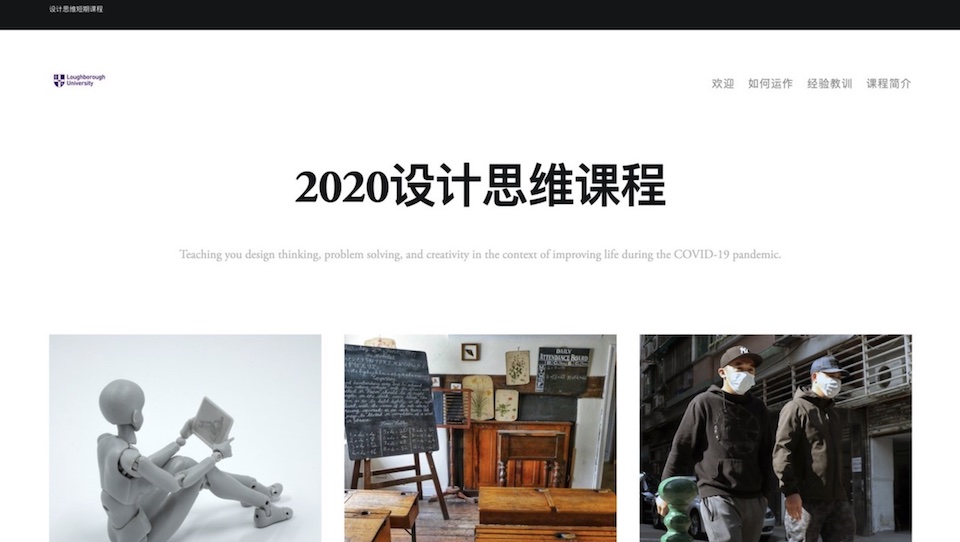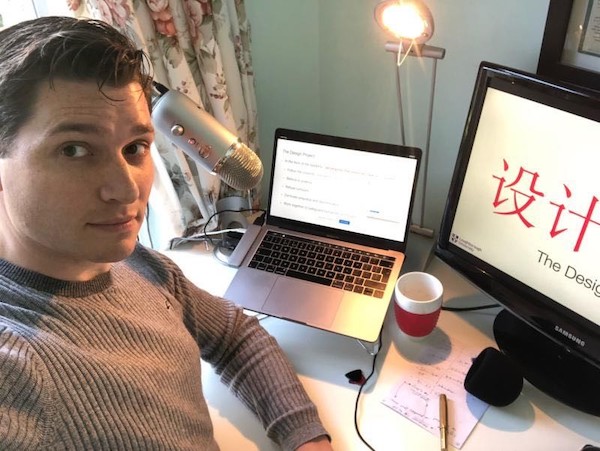Loughborough University’s collaboration with CAFA is central to our international prominence, building strong ties with China’s leading academics and institutions for research, teaching, and industrial practice. The short course was an opportunity to demonstrate Loughborough’s excellence in design, teaching, and research to 3rd year students and staff.
Faced with having to find an alternative way to deliver the course, Professor Ian Campbell collaborated with Dr Christopher Parker, who has previously taught in China; including at Beijing Normal University and Zhongyuan University of Technology, to develop online teaching methods, curriculum development, and content delivery. Dr Fangjin (Virginia) Zhang, a visiting Fellow in the School of Design and Creative Arts, also collaborated on the project and supported by translating the virtual lessons.
The team have a history of working together, including winning a nomination prize for Beijing’s Daxing International Airport in 2019.
Working from their homes in Nottingham and Manchester, the team delivered their content remotely using a range of technologies to CAFA students who joined in from their homes located all over China. Using Zoom it allowed the team to share screens, use virtual whiteboards, and record their sessions. Slido provided the opportunity for text-based student interaction by running quizzes, taking feedback, and creating discussions. This way, the team transcended language and geographical barriers to recreate the classroom experience of interaction and high-level critical thinking instead of only presenting videos.
Using WeChat - the Chinese equivalent of WhatsApp - to talk with students outside of class times, student groups were formed, and they shared appointments, resources, and extended their dialogue. WeChat became an essential, yet informal, online teaching space.
To coordinate students, share lecture materials, and share web resources, Dr Parker used his UX design skills to build a website which created a permanent reference point for students to return for theory and practice guidance.
The course was a success, despite the time differences and the fast turnaround of the content developed, students attended all of the sessions and were able to grasp the importance of user empathy in their design processes. The student groups designed novel solutions to mental health issues that COVID-19 lockdowns are causing. The work is of such a high standard that CAFA and Loughborough University are submitting their work as part of an international response the COVID-19 pandemic: the We Are Together design competition. The team are also preparing a pedagogic paper based on their teaching experience with CAFA in the wake of COVID-19, which will be hosted as a webinar to Loughborough University staff.

